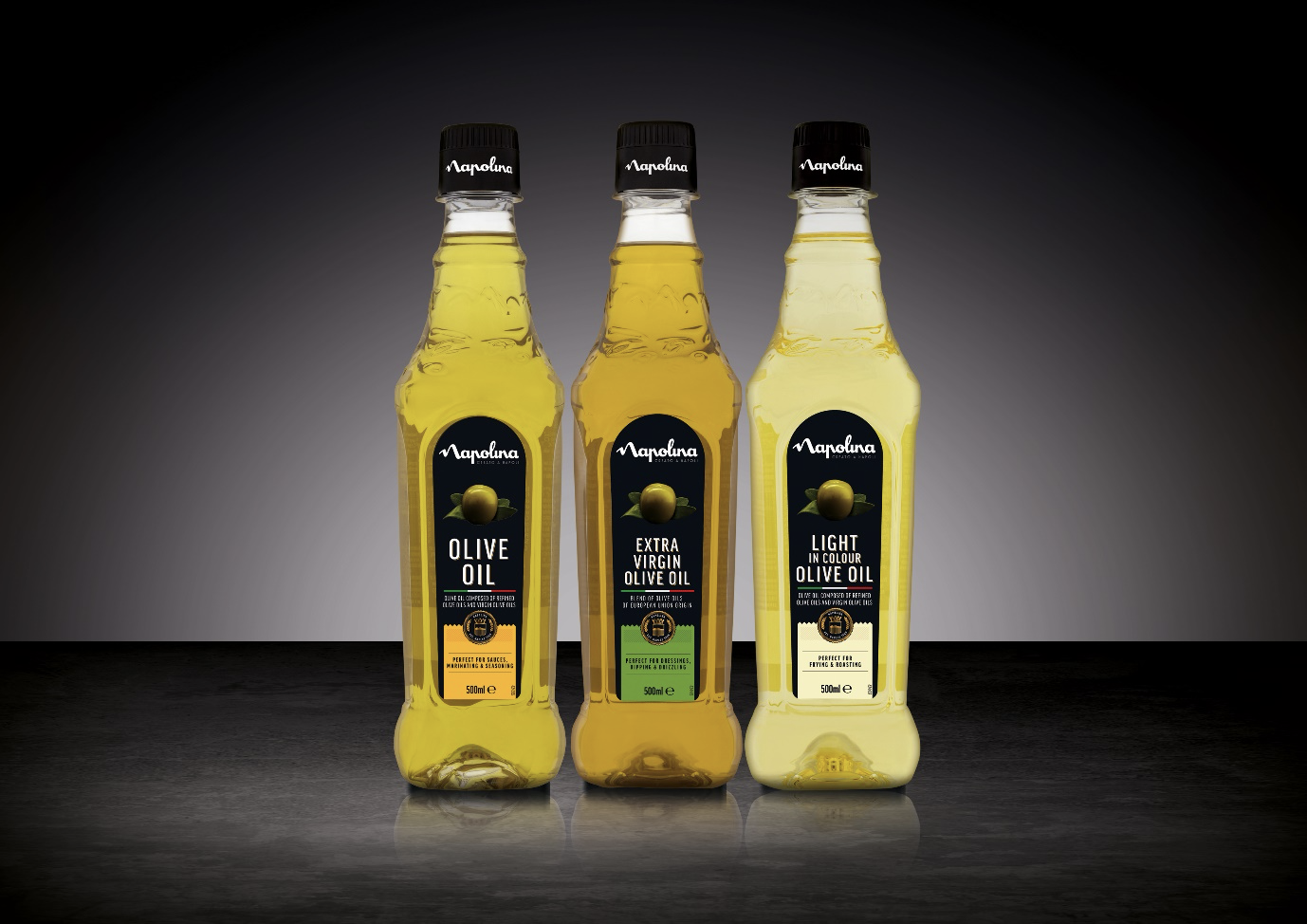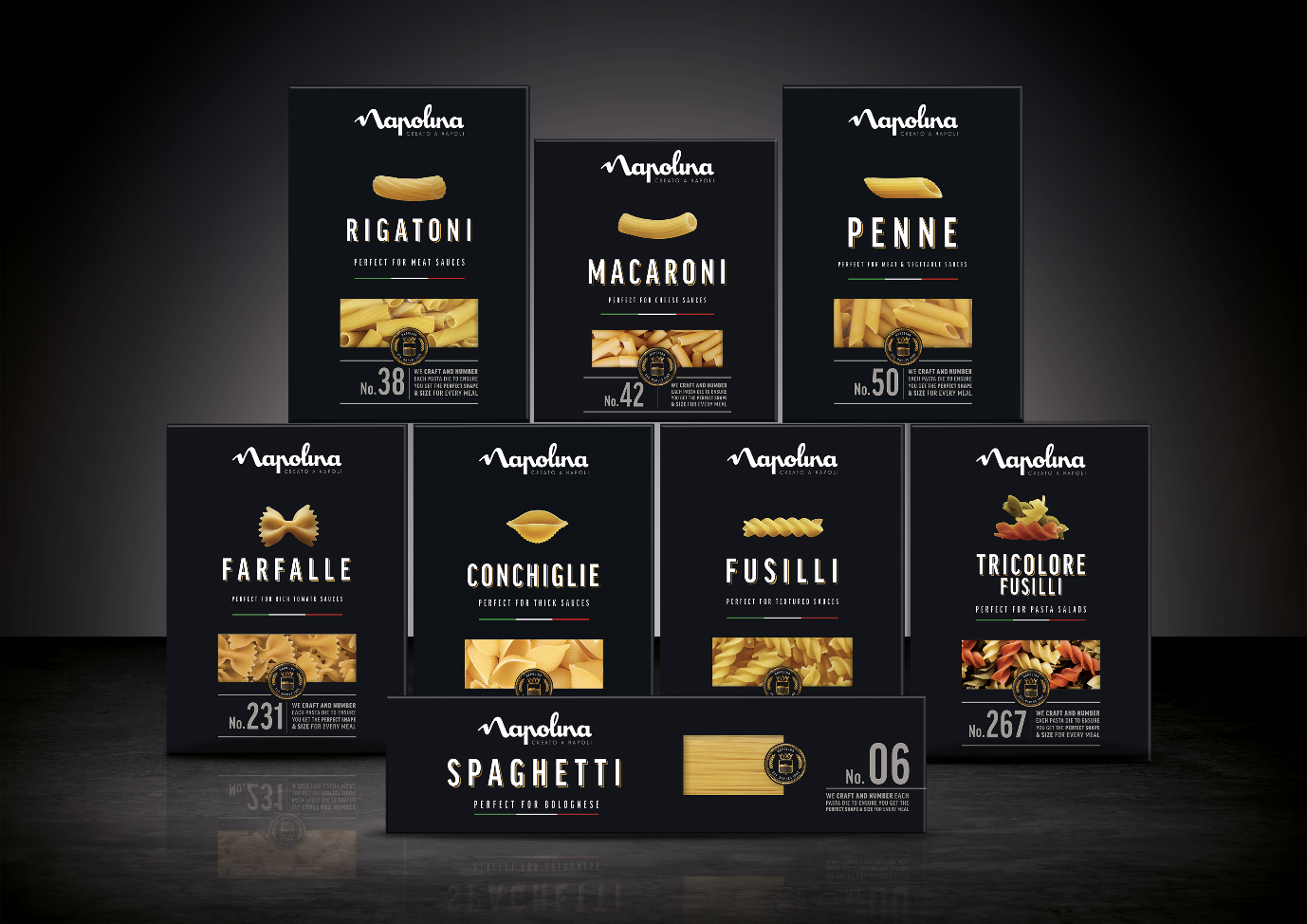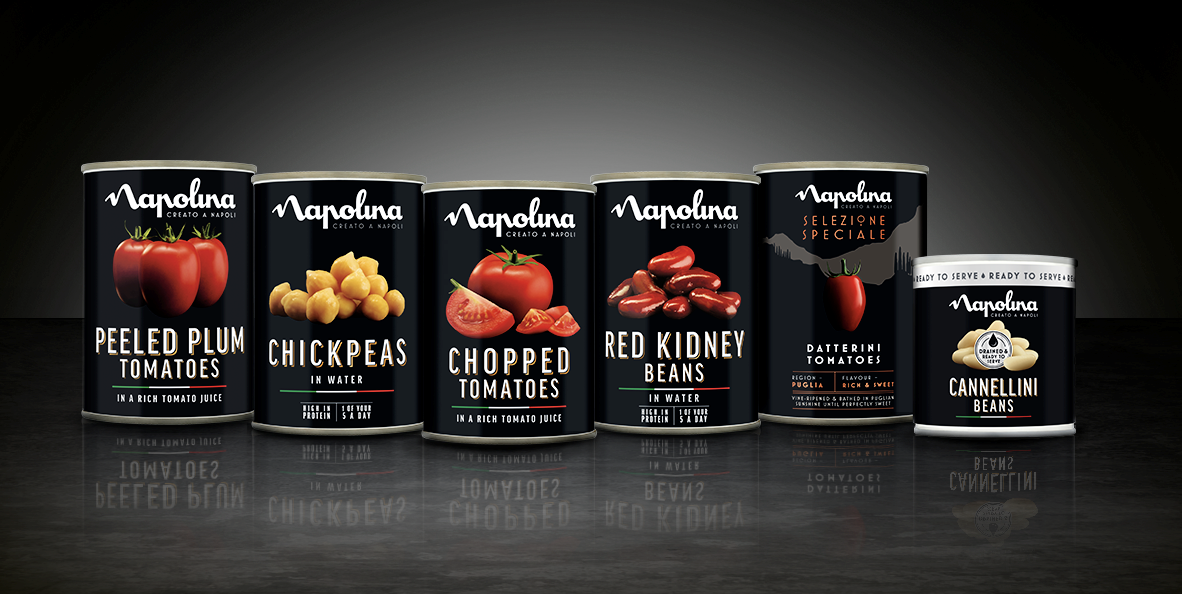Packaging Sustainability
At Napolina we strive to source the best ingredients but reducing our impact on the planet is also at the heart of everything we do. Find out more below on how we are working to reduce the amount of packaging waste on your favourite Italian ingredients.
Oils Bottles
As well as sourcing the best quality olive oil, we are committed to making sure our packaging is as sustainable as possible. Our plastic bottles are much lighter and easier to transport than glass which means each bottle has a carbon footprint that is 60% less than glass alternatives. The plastic used in our bottles is also made from 100% recycled content and is fully recyclable. This means no new plastic is used to create our bottles. *

Pasta Boxes
In 2019, 230m non-recyclable pasta bags were thrown away in the UK. As the UK’s number one pasta brand, we understand our responsibility to limit our impact on the environment. In 2020, as part of our commitment to transparency and sustainability, we moved our entire pasta range into cardboard packaging. The pasta boxes are 100% recyclable and will eliminate up to 189 tonnes of plastic from the UK waste stream each year. **

Cans
Most of our tomatoes, beans and pulses are packed in cans which maintains their quality for years without the need for preservatives. Given the ease of recycling, cans are also a more sustainable option than other packaging types. Recycled cans can be made into objects like bikes, cars or another can, which can be back on the shelf within 8 weeks. The aluminium in Napolina cans be infinitely recycled without the loss of quality and no new material is used. ***

* All Napolina oil bottles are now made from 100% recycled PET (Polyethylene Terephthalate) plastic (excludes cap and label). 100% of the
bottle is recyclable.
38 tonnes of virgin plastic will be removed from production each year from us now moving to a 100% PET from 51% PET, which is
calculated against an average annual forecast of 8,000,000 units . Calculations provided by Plastipak
Based on average CO2 emission collated Valpak for 2020, production and transportation for a case of oil in glass bottles is 1,569 Eq CO2g.
The equivalent production and transportation for a case of oil in bottles made from 100% RPET is 587 Eq CO2g. Therefore, our move to
100% PET will reduced our carbon footprint by 60% less than glass. Calculations provided by Plastipak
The CO2 emissions from producing 8,000,000 units (annual volume forecast) of 51% recycled PET bottles is 6,941m tonnes per year. For
bottles made from 100% recycled PET, this drops by 612 tonnes to 6,330 tonnes. Figures provided by Plastipak
Based on average CO2 emissions collated Valpak for 2020, new car emissions are 127.9g per km and on average the annual millage is
12,714km, this equates to a car producing 1.63 tonnes of CO2eq per year. Given the saving of 611.3 tonnes of CO2eq per year from
moving from 51% to 100% RPET, Napolina’s emission reduction equates to taking more than 375 cars off the road annually. Calculations
provided by Plastipak.
** Plastic saving based on moving from plastic bags to paper boxes and calculated from annual Napolina pasta sales to March 2021
*** Sourced from Love Canned Food





